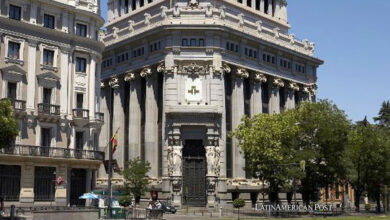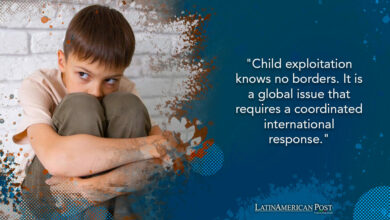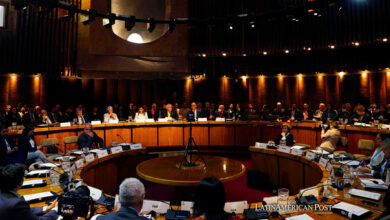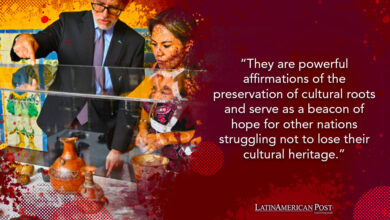Trinidad’s Turmoil: A Caribbean Crisis in a Latin American Context
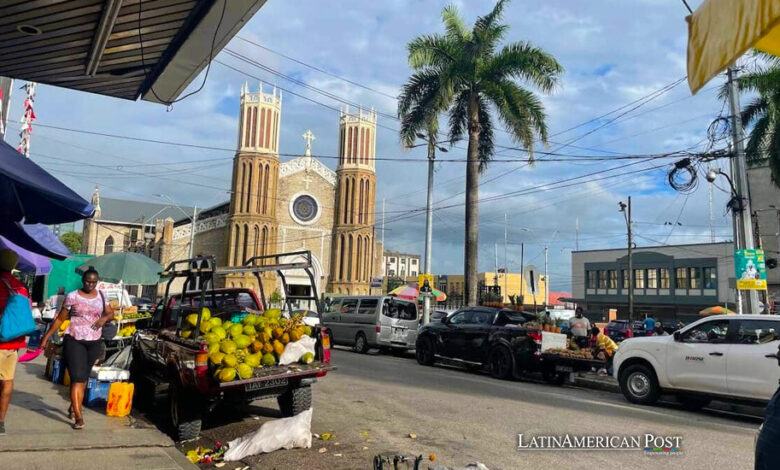
Trinidad and Tobago’s Prime Minister Keith Rowley vows relentless action against crime following a surge in violence, with eight murders in a single day in Port of Spain. This alarming trend underscores a broader regional struggle with rising crime rates and gun violence in Latin America.
In the bustling streets of Port of Spain, the capital of Trinidad and Tobago, a day of violence resulted in eight lives lost, sending shockwaves through the Caribbean nation. This tragic incident, particularly a deadly shooting at Harpe Place, has ignited a fierce determination in Prime Minister Keith Rowley and his government to combat the escalating crime wave. As the twin-island nation grapples with a security crisis marked by the proliferation of assault weapons and criminal gangs, the recent surge in homicides has drawn attention not only nationally but also within the broader Latin American and Caribbean region.
In a single distressing day, five individuals were fatally shot at a residential complex in Harpe Place, while separate violent acts claimed three more lives across Port of Spain. These events have catalyzed a national outcry against the growing disregard for human life, with Prime Minister Rowley expressing deep condolences and a solid commitment to addressing the crisis. The casualties included a police sergeant, underscoring the dangers law enforcement officers face amid rising urban violence.
Trinidad and Tobago’s Security Quandary
Trinidad and Tobago, known for its vibrant culture and economic prosperity driven by oil and gas, is now confronting a daunting challenge: a surge in criminal activities and gun violence. The prime minister’s acknowledgment of the security crisis highlights the complexity of combating organized crime, which is increasingly equipped with military-grade weapons. The government’s pledge to dismantle the prevailing “gun culture” reflects a broader regional struggle against crime and illegal arms.
The alarming events in Trinidad and Tobago resonate across Latin America and the Caribbean, a region wrestling with high crime rates and security concerns. Nations like Brazil, Mexico, and Colombia face similar challenges, where drug trafficking, gang violence, and political instability fuel the cycle of crime. The Caribbean, while distinct in its socio-political dynamics, is not immune to these issues, with islands like Jamaica and Haiti also experiencing significant violence.
Socio-economic Factors and Crime
The rise in criminality in Trinidad and Tobago and its neighbors can be attributed to various socio-economic factors, including poverty, unemployment, and inequality. These conditions, exacerbated by global economic pressures and local governance issues, create fertile ground for crime and violence. In Trinidad and Tobago, the financial reliance on the oil and gas sector has led to wealth disparities and social tensions, contributing to security challenges.
In response to the surge in violence, Trinidad and Tobago’s government, like many in Latin America, is focusing on strengthening law enforcement and judicial processes. However, addressing the root causes of crime requires comprehensive social programs and economic initiatives to improve living conditions and reduce the appeal of criminal activities. The impact of violence on communities is profound, with trauma and fear permeating daily life and hindering social and economic development.
International Cooperation and Future Outlook
The fight against crime in Trinidad and Tobago is not an isolated battle; it necessitates regional collaboration and international support. Latin American and Caribbean nations often share intelligence, resources, and strategies to combat cross-border crime, including drug trafficking and arms smuggling. The future trajectory of Trinidad and Tobago’s security situation will depend on both domestic policy effectiveness and the strength of international partnerships in addressing the multifaceted nature of crime and violence in the region.
Also read: Avian Crisis: Bird Flu Threatens Latin America’s Wildlife
The tragic events in Port of Spain underscore a critical moment for Trinidad and Tobago and its Latin American and Caribbean counterparts. Prime Minister Rowley and his administration’s resolve in confronting this crisis reflects a broader regional imperative to restore peace and security. As these nations navigate the complex landscape of crime prevention and socio-economic development, the shared experiences and lessons of the wider Latin American and Caribbean communities will be pivotal in shaping a more secure and prosperous future for all.


